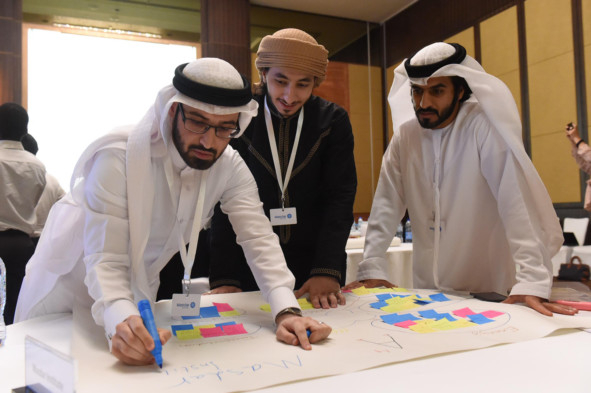
Abu Dhabi: Omar Ali believes that measuring the increased water salinity along the UAE coastline is the first step towards eradicating the threat to its wildlife.
“There are many ways we can do this, but the most effective way to monitor this continuously is through the use of satellites. In this way, space technology can help protect and preserve the UAE’s environmental resources,” Ali, a fourth year Emirati student at Khalifa University, told Gulf News.
“While it won’t solve the problem, it will help us understand it better, and this is one of the true benefits of space science,” he added.
Ali, who is studying aerospace engineering, was participating in the UAE Space Agency’s Ideathon with his teammate, Alia Al Beloushi, 21, another Emirati aerospace engineering student.
The Ideathon pitted five teams of university students against one another in a bid to select the best projects for space technology utilisation. The contest was organised by the UAE Space Agency in collaboration with the Japan Aerospace Exploration Agency.
The winning team will travel to Japan in early 2017 to undertake flight experimentation, and learn more about emerging space technologies.
Takayoshi Fukuyo, deputy director and unit chief at Japan’s National Space Policy Secretariat, said the aim of the Ideathon is to encourage space innovation among students and allow for space capacity building.
“Until a decade ago, space was a government-only turf. But things have changed. And to optimise the use of space science and use it for real-world problem solving, we need the participation of the private sector, and for ideas to be generated from our future scientists and policy makers,” Fukuyo said.
Many of the projects discussed as part of the competition involved the use of CanSats, miniature satellites roughly the size of soda cans that are frequently used to teach the intricacies of space science and technology.
“We believe space science can be used to make agriculture more efficient in the UAE. Through satellite monitoring, we can determine the areas that will get the most rain and thus determine the best place to plant crops,” said Lamya Al Marzouqi, a fourth year mechanical engineering student at UAE University.
More than Dh20 billion has already been invested by the UAE in space technologies so far, including for the development and operation of satellite data and communication satellites, mobile satellites and earth mapping satellites.












